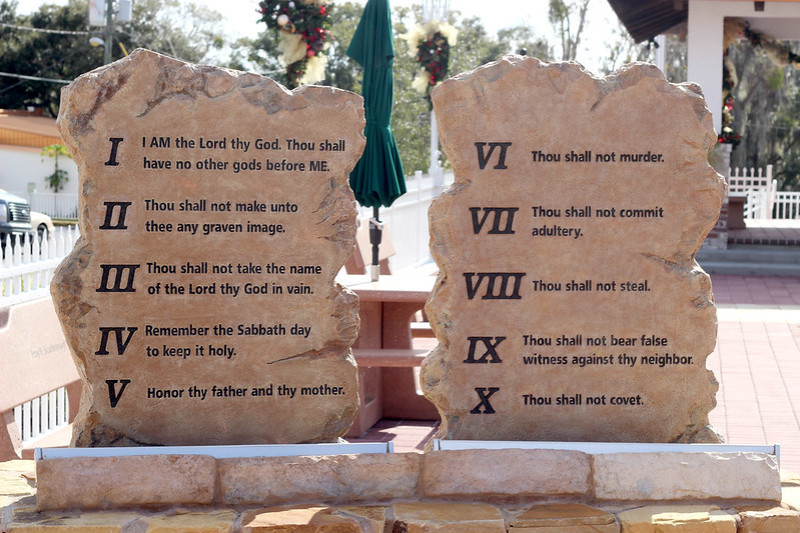
Republican Sen. Phil King's Senate Bill 1515, which would mandate the Ten Commandments be exhibited in Texas classrooms, was just advanced by the Texas Senate. The state House will now be considering the bill. If approved, the commandments would have to be posted in each classroom starting the following academic year in public schools.
Some critics of the bill have stated that it violates the First Amendment's Establishment Clause and that the bill is undoubtedly unconstitutional.
Texas Bill Mandating Display of Ten Commandments in Public Schools Faces Legal Challenge
According to the article shared in Texas Public Radio, the American Civil Liberties Union (ACLU) Texas staff attorney David Donatti noted that this is not the only bill in the Texas legislature that is seeking to combine public schools and the religious institutions. Another illustration is S.B. S.B. 763, which would let the chaplains counsel students rather than professionals with licenses, and S.B. 1396, which would provide a time for Bible reading and prayer in districts across Texas. Donatti expressed alarm over the likelihood that particular religious beliefs would take over public schools.
Sen. King argued in support of the proposal by mentioning how important the Ten Commandments are to American tradition. As it moves to the state House for discussion, the law's potential impact on public schools and religious institutions is still a contentious issue.a
In the story published on the Freedom From Religion Foundation website, according to the supporters of the bill, if the Ten Commandments would be displayed, this will serve as a reminder to the pupils of America's founding principles. But the criticizers of the bill argues that only three of the Ten Comandments are applying and have significance for the American law.
Dan Patrick, the lieutenant governor of Texas, has endorsed the legislation and argued that restoring the Ten Commandments and prayer to public schools is going to help kids become better Texans. The first four commandments, according to opponents, are unconstitutional under the First Amendment, and the government has no business deciding what religion kids should practice. They also highlight the Tenth Commandment's illogical and sexist elements.
The measure has been ruled illegal based on the U.S. Supreme Court's ruling in Stone v. Graham (1980), which held that the Ten Commandments constitute a religious text and that putting them in classrooms is fundamentally religious. Texas politicians, though, are optimistic that the high court's conservative majority would reverse this ruling. The FFRF is ready to oppose the law in response, highlighting the need to defend the First Amendment.
Also Read:Religious Freedom Bill Advances to Senate After Clearing House Vote
Other Proposals and Some Issues Related to Religion
Some parents attempted to donate posters that said "In God We Trust" in Arabic or displayed in rainbow lettering in opposition to the contentious Texas law requiring the Ten Commandments to be displayed in public schools, but they were unsuccessful. According to The Dallas Morning News, this problem has brought to light the ongoing discussion about the separation of church and state in Texas education.
Sen. Mayes Middleton, R-Galveston, sponsored a plan that might allow for voluntary prayer periods in classrooms, need parental permission, and permit children to study the Bible or other religious books. Advocates and researchers are concerned about the separation of church and state in Texas education because of several measures in the current legislative session, including this one.
The introduction of an education savings account scheme, which would distribute public monies to families to spend toward private school tuition, including at religious schools, is being promoted by both Lt. Governor Dan Patrick and Governor Greg Abbott. Governor Abbott has promoted this program at Christian schools all around the state.
In addition, a bill that would have allowed districts to use chaplains rather than licensed counselors was recently discussed by the House public education committee. Critics contend that these activities violate Texas students' right to freely exercise their religion because they come from a diverse community with various religious and cultural customs.
Related Article:Religious Freedom in Canada 'Essentially Dead,' Says Lawyer for Teen Suspended Over Trans Comments



















